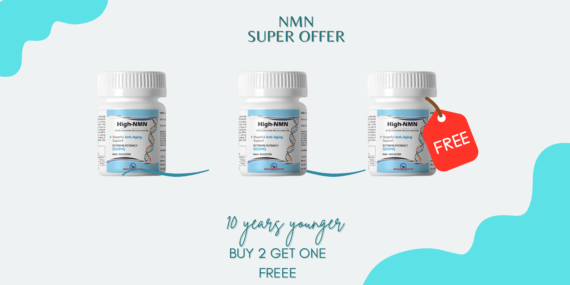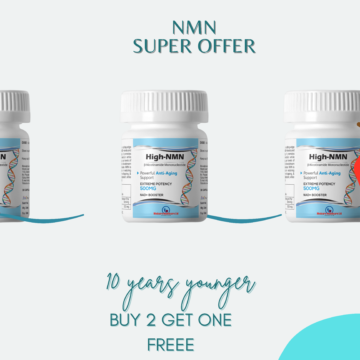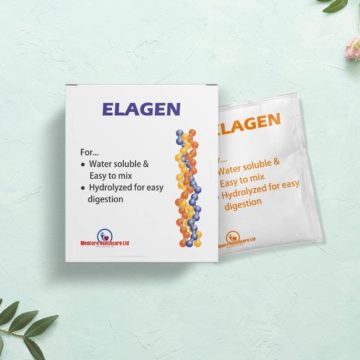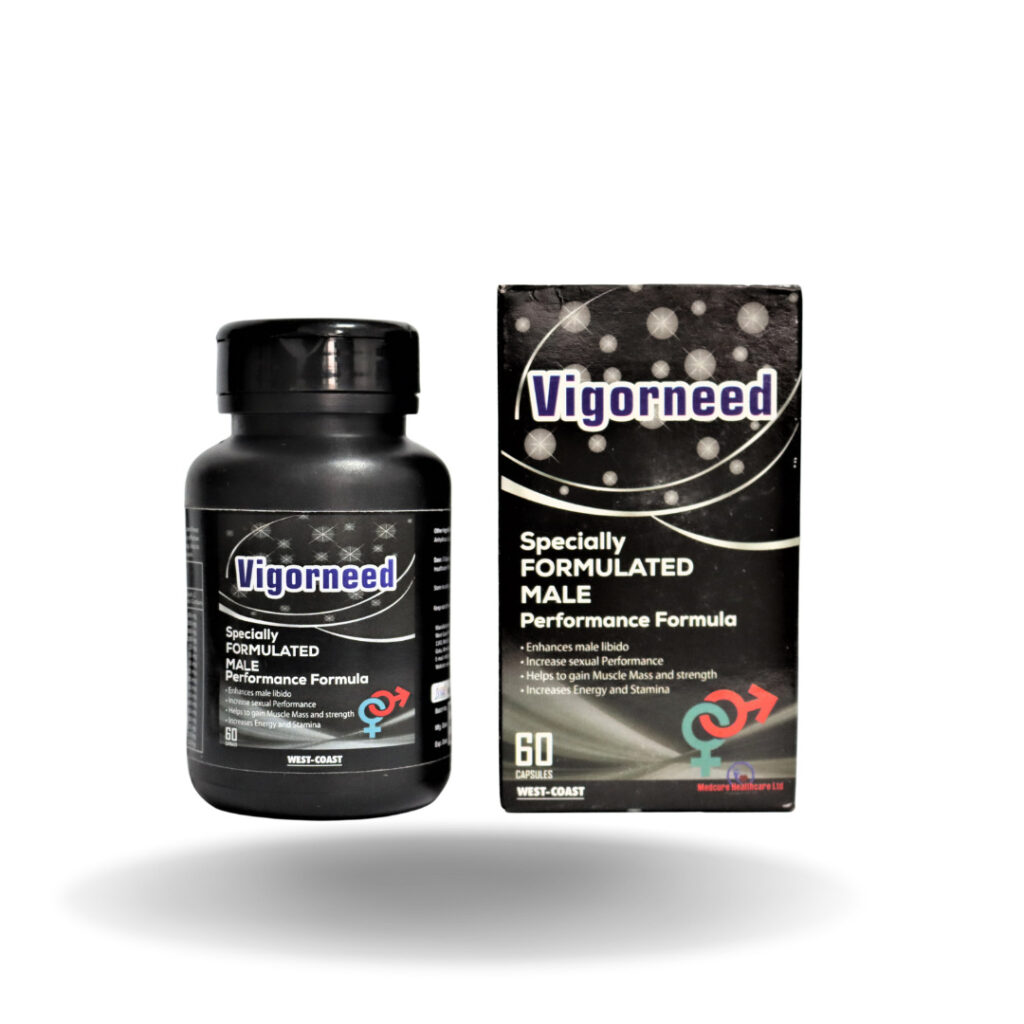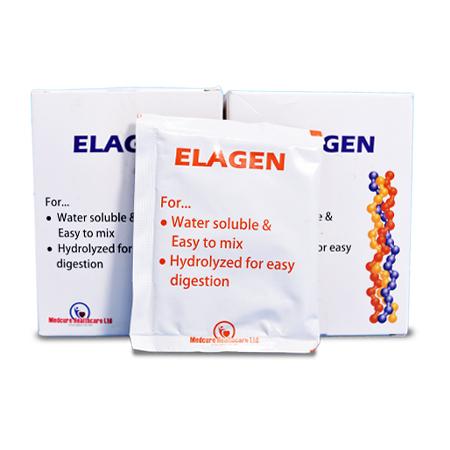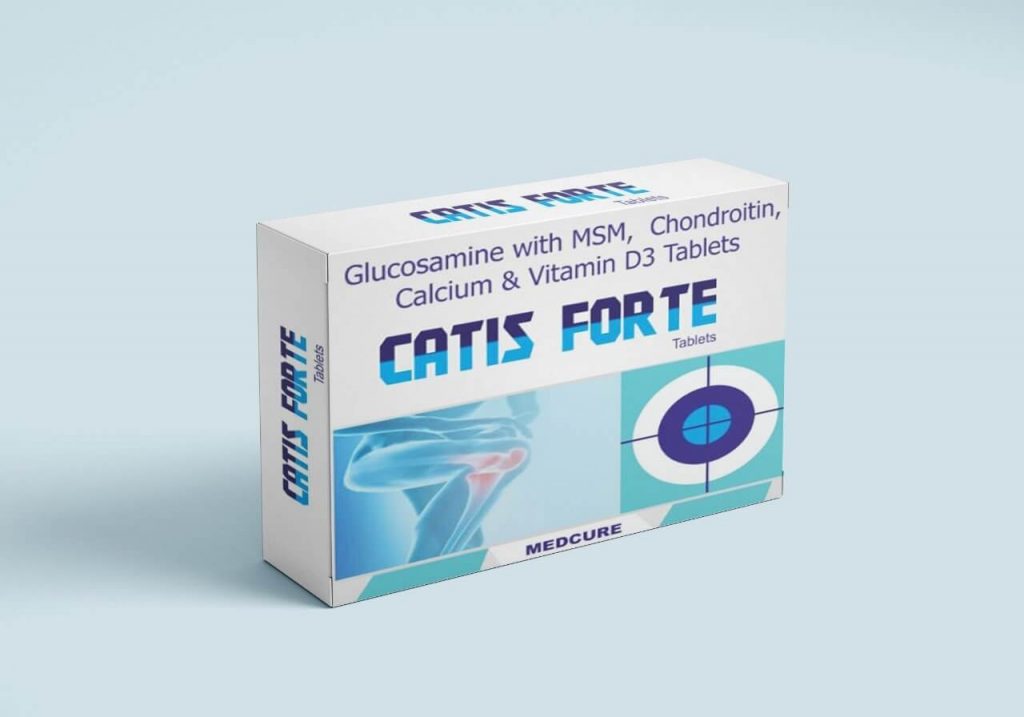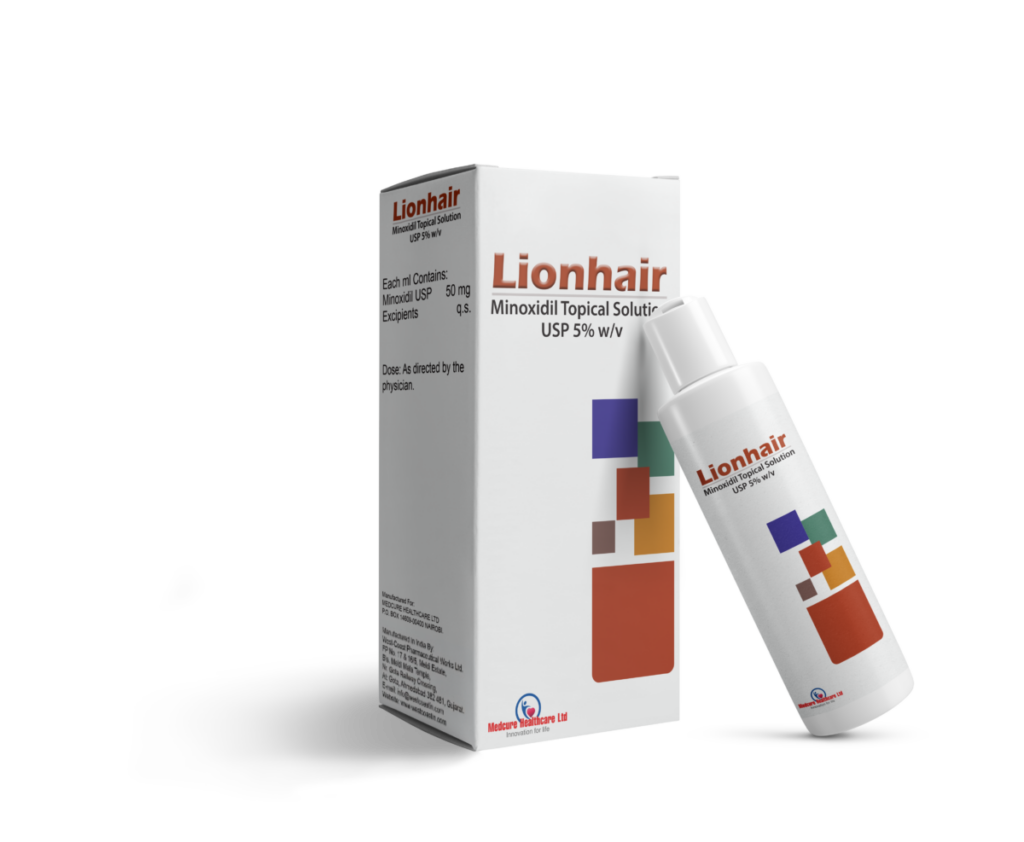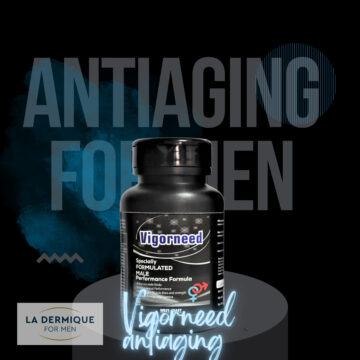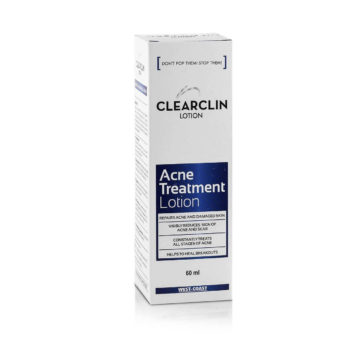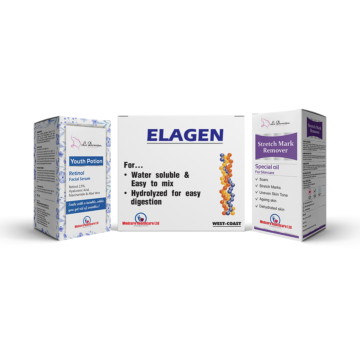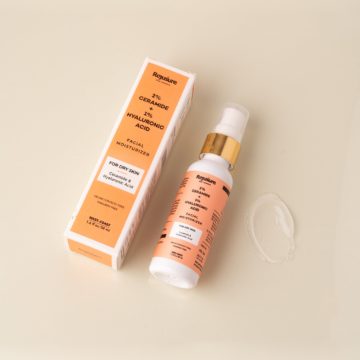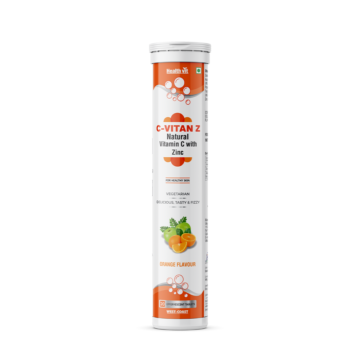KEY PRODUCT FEATURES
- Powerful antiaging support
- Extreme potency 500mg
- NAD+ Booster
- Natural vitamin B3 derrivative
- Buy 2 and get one bottle free
- A pack of 3 equals 90 day dose
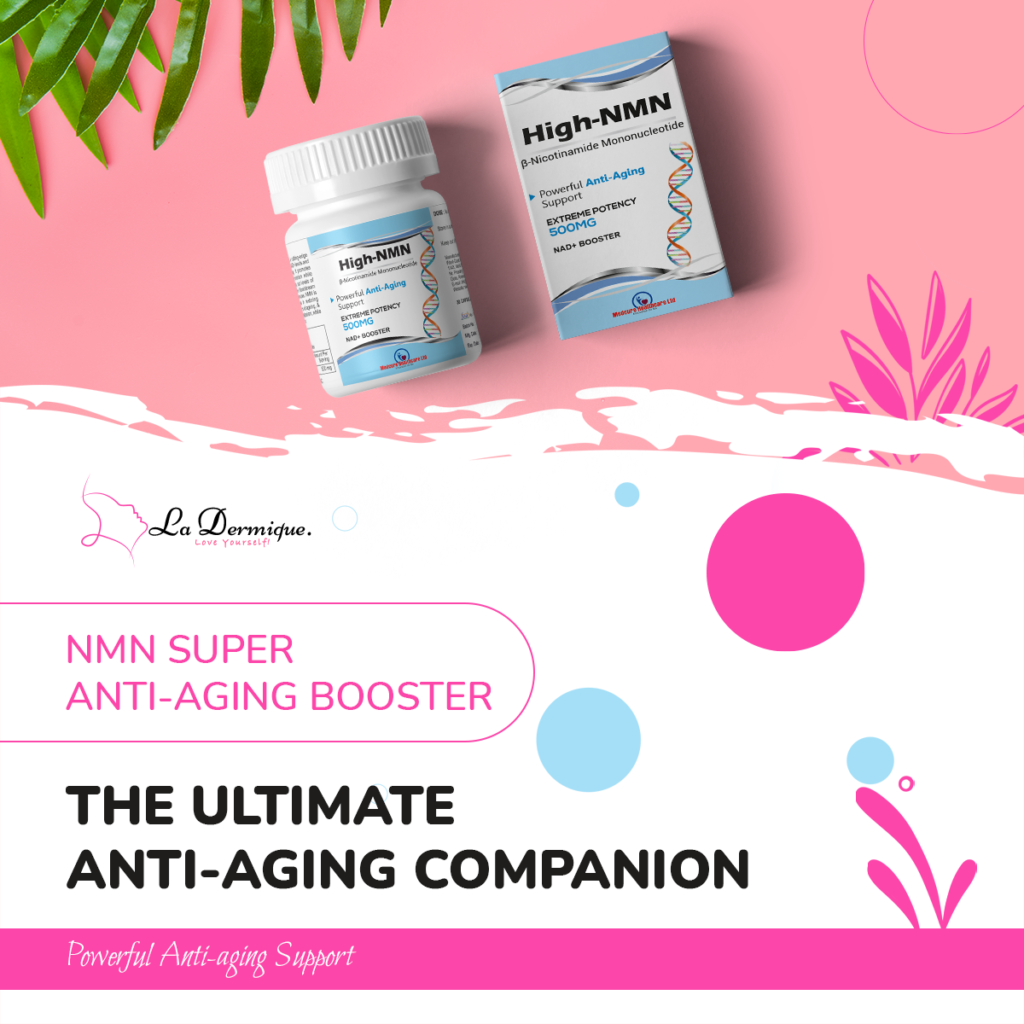
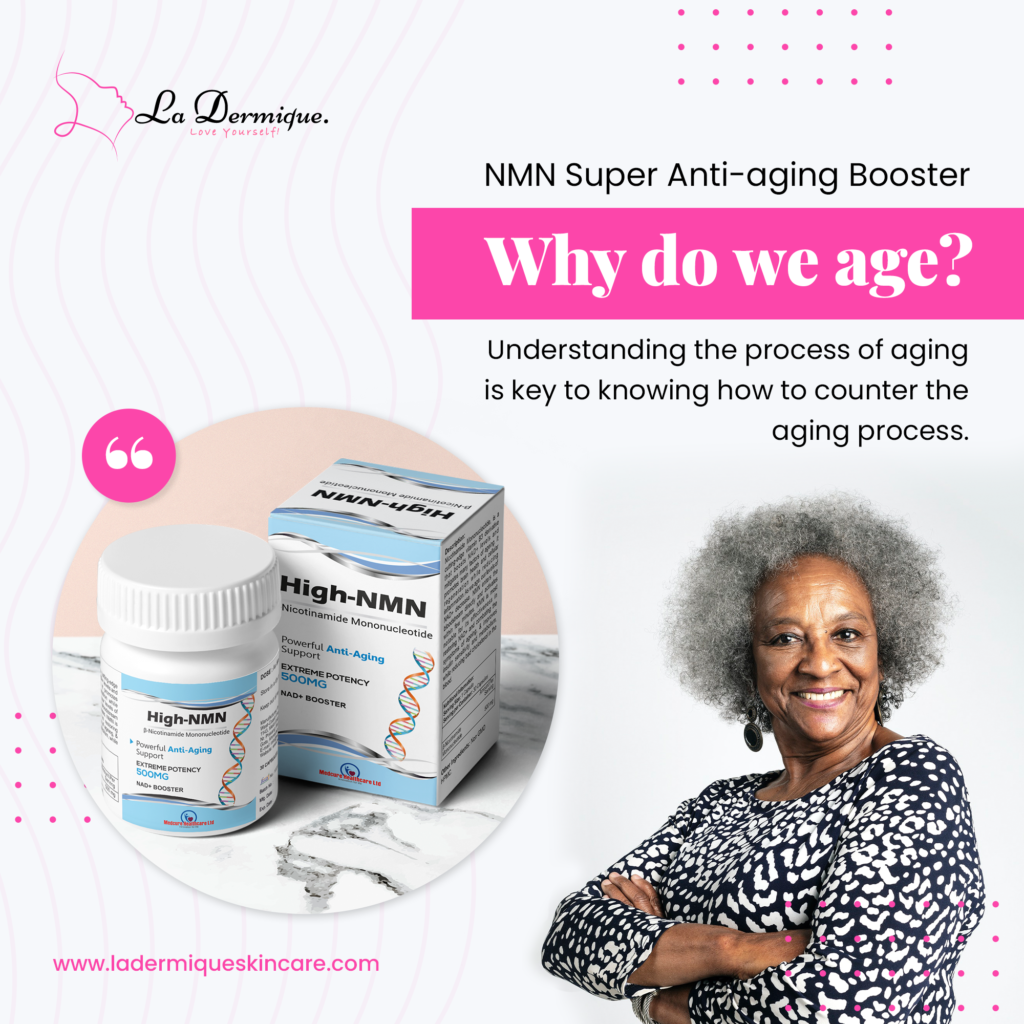
Aging is a complex process influenced by various factors, including genetic, environmental, and lifestyle factors. Here are some key reasons why we age:
1. Genetic Factors: Our genes play a significant role in determining our lifespan and how we age. Certain genes are associated with longevity, while others may predispose us to age-related diseases.
2. Cellular Damage: Over time, our cells accumulate damage from factors such as oxidative stress, inflammation, and DNA damage. This damage can lead to cellular dysfunction and contribute to the aging process.
3. Telomere Shortening: Telomeres are protective caps at the end of chromosomes that shorten with each cell division. As telomeres shorten, cells lose their ability to divide and regenerate, leading to aging and age-related diseases.
4. Mitochondrial Dysfunction: Mitochondria are the powerhouse of the cell and play a crucial role in energy production. With age, mitochondrial function declines, leading to decreased energy production and cellular damage.
5. Decline in Hormones: Hormones such as growth hormone, testosterone, and estrogen decline with age, leading to changes in metabolism, muscle mass, and bone density.
6. Accumulation of Senescent Cells: Senescent cells are damaged cells that no longer divide but remain active and secrete harmful substances. The accumulation of senescent cells contributes to inflammation and tissue damage.
7. Lifestyle Factors: Factors such as diet, exercise, stress, and exposure to toxins can influence the aging process. Unhealthy lifestyle choices can accelerate aging, while healthy habits can slow it down.
8. Epigenetic Changes: Epigenetic changes, which alter gene expression without changing the underlying DNA sequence, can impact how our cells age and contribute to age-related diseases.
While aging is a natural process, understanding its underlying mechanisms can help us make informed lifestyle choices to promote healthy aging and potentially delay the onset of age-related diseases.
Benefits of boosting NAD+ Levels:
Boosting NAD+ levels is thought to reverse aspects of the aging process by supporting various cellular functions and pathways that decline with age. Here’s how it works:
1. Energy Production: NAD+ is a coenzyme involved in cellular energy production, particularly in the mitochondria. By increasing NAD+ levels, cells can produce more energy, which may help counteract age-related declines in metabolism and cellular function.
2. DNA Repair: NAD+ is required for the activity of sirtuins, a group of proteins that play a role in DNA repair and maintenance. By activating sirtuins, NAD+ can help repair damaged DNA, which is crucial for preventing mutations and preserving cell function.
3. Gene Expression: NAD+ levels influence gene expression patterns, particularly those related to aging and longevity. By modulating gene expression, NAD+ can help regulate cellular processes that impact aging, such as inflammation and oxidative stress.
4. Cellular Communication: NAD+ is involved in various signaling pathways that regulate cellular communication and metabolism. By maintaining optimal NAD+ levels, cells can communicate more effectively and respond appropriately to stressors and stimuli.
5. Mitochondrial Function: NAD+ supports mitochondrial function, including mitochondrial biogenesis (the creation of new mitochondria) and the removal of damaged mitochondria through a process called mitophagy. This can help improve cellular energy production and reduce oxidative stress.
6. Inflammation and Immunity: NAD+ plays a role in regulating inflammation and immune responses. By modulating these processes, NAD+ may help reduce chronic inflammation, which is linked to age-related diseases.
Overall, boosting NAD+ levels is believed to enhance cellular resilience, repair mechanisms, and energy production, which can collectively contribute to a slower rate of aging and a reduced risk of age-related diseases.
